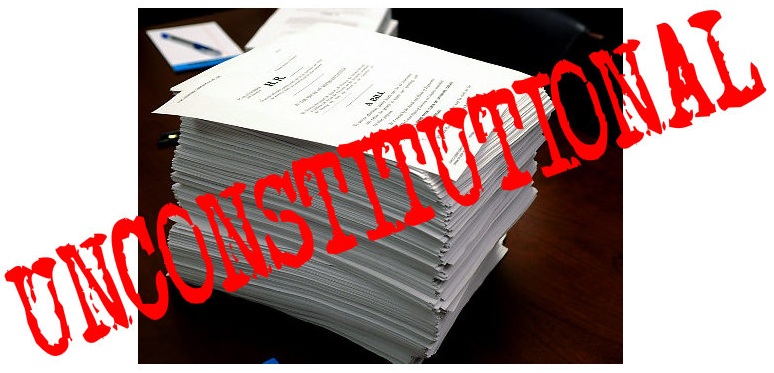
Origination Clause


Obamacare’s Constitutionality and the Origination Clause: New Evidence
One of the constitutional disputes triggered by the Affordable Care Act, Obamacare, is whether by substituting new material for the original House-passed bill (H.R. 3590), the Senate exceeded its constitutional power to amend the original measure. This, in turn, has...
Did Obamacare Violate the Constitution’s Origination Clause?
Note: This a modified version of an article that appeared at The American Thinker. Two years ago, the Supreme Court declared Obamacare’s penalty for failure to purchase conforming insurance to be a “tax.” Several plaintiffs subsequently sued in federal court arguing...The Results Are In: The Obamacare “Penalty” Didn’t Violate the Origination Clause, but Obamacare’s Regulations Did
Is the penalty for not buying insurance in the Affordable Care Act (ACA—Obamacare) unconstitutional as a “tax” that originated in the Senate? Under the Constitution’s Origination Clause, the answer appears to be “no”—the Senate’s decision to add the penalty to the...
The Founders’ Origination Clause (and Implications for the ACA)
This Article is the first comprehensive examination of the original legal force of the Constitution’s Origination Clause, drawing not merely on the records of the 1787-90 constitutional debates, but also on Founding Era British and American legislative practice and...
